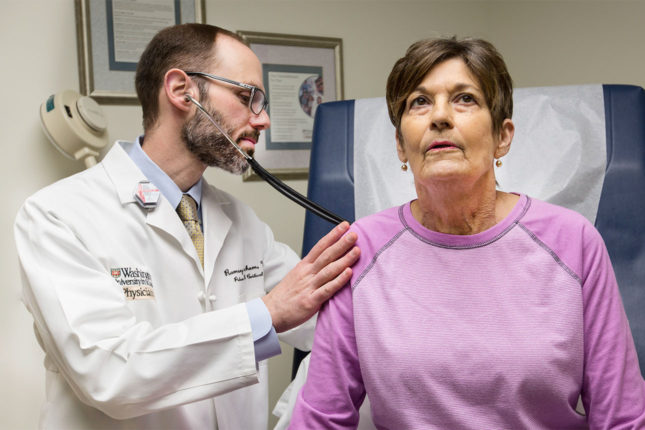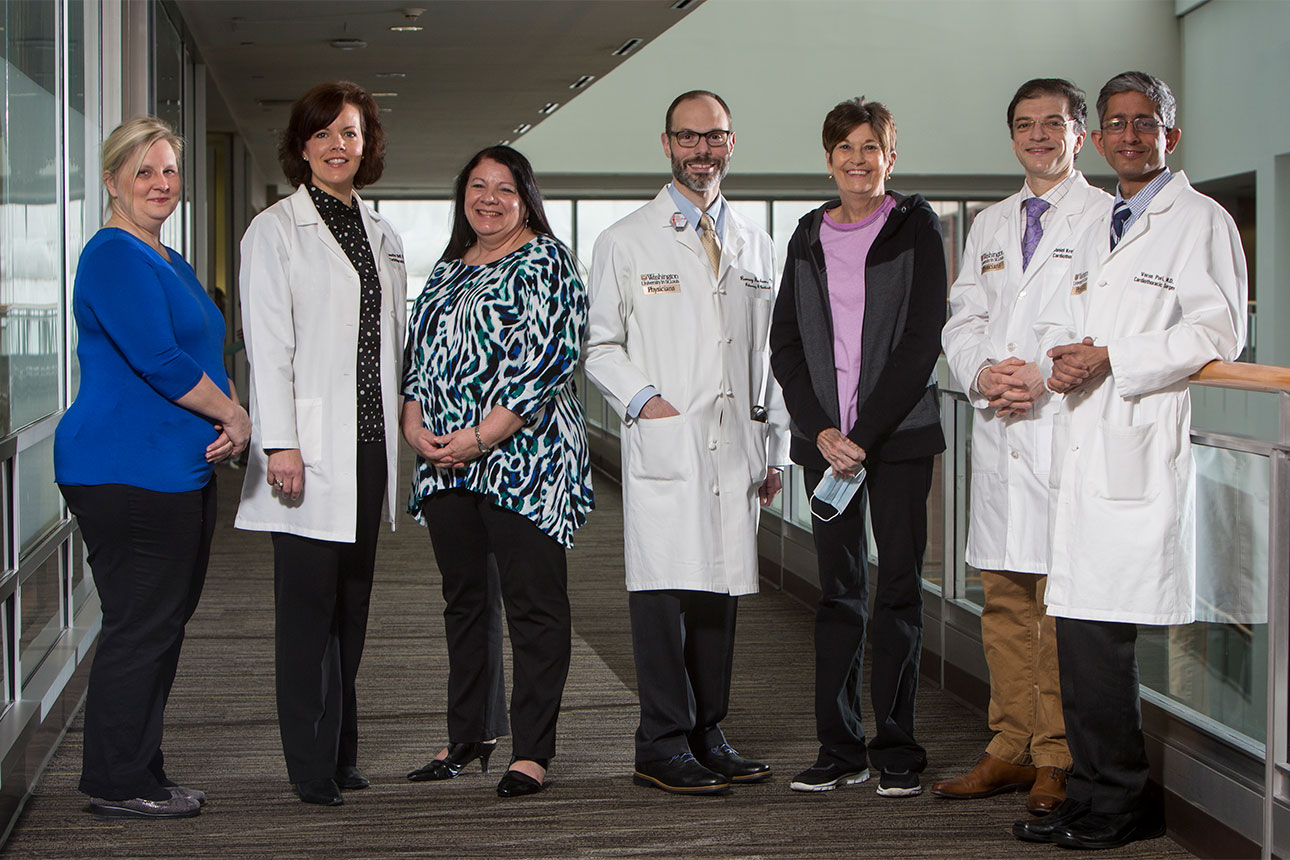
The Lung Transplant Program at Washington University School of Medicine and Barnes-Jewish Hospital was founded in 1988. Since its inception, more than 1,900 patients have undergone lung or heart-lung transplantation at Barnes-Jewish Hospital.
In recent years, approximately 70-90 patients have undergone lung transplantation annually. The most common diagnosis leading to lung transplantation at Barnes-Jewish Hospital today is Interstitial Lung Disease or Pulmonary Fibrosis, which accounts for over 50% of all transplants. An additional 30% of patients are transplanted for Chronic Obstructive Pulmonary Disease (COPD), and about 5% are transplanted for Cystic Fibrosis (CF). The remaining transplant recipients consist of patients with all forms of advanced-lung diseases. The lung transplant program is highly engaged in research to improve clinical outcomes after transplantation.
Chad Witt, MD is the medical director and Daniel Kreisel, MD, PhD, is the surgical director of the Lung Transplant Program. The program consists of a multidisciplinary team of pulmonary physicians, thoracic surgeons, nurse coordinators, transplant pharmacists, respiratory therapists, dieticians, social workers, and financial coordinators.
The program is dedicated to the care of patients with advanced lung disease through transplantation and the longitudinal management of lung transplant recipients. The program is also committed to education and training, and engages pulmonary and critical care fellows rotating on the inpatient lung transplant service and in dedicated lung transplant clinics as part of their clinical training. During the academic year, the program has a weekly lung transplant conference focused on education and training. In addition, this conference serves as a platform for developing and presenting research projects.
Members of the transplant team are engaged in numerous basic science and clinical research projects focused on improving outcomes after lung transplantation by investigating approaches to prevent and manage acute and chronic rejection, the role of respiratory infections in the development of chronic rejection, and the impact of humoral immunity on long term outcomes.
